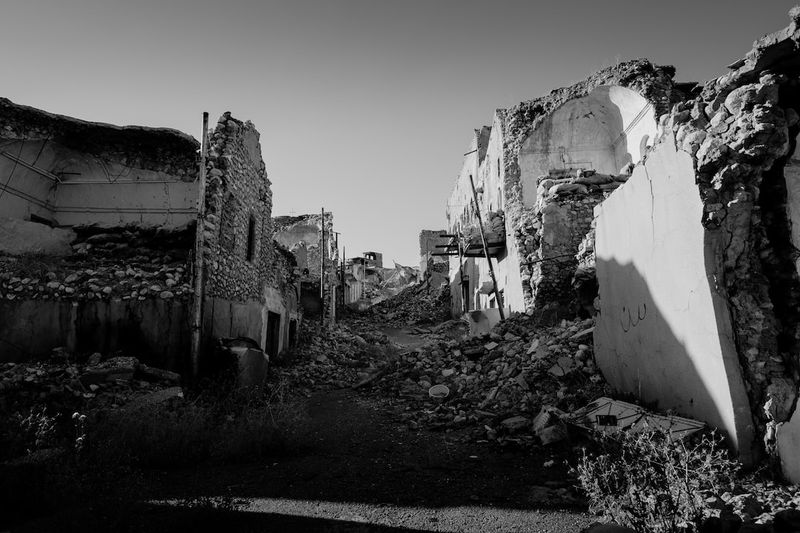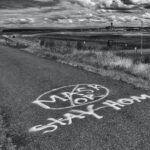Israel: Survivors of Hamas Attack Share their Harrowing Experience
The Attack on Nahal Oz
Nahal Oz, a kibbutz located in southern Israel, is home to approximately 400 people. Situated just 600 meters away from the nearest Palestinian house in Sajaiya, the kibbutz has historically had a close connection with its neighbors in the Gaza Strip. However, the recent violent attack carried out by Hamas militants has shattered any hopes of continued friendship and cooperation.
The attack on Nahal Oz, which claimed the lives of two entire families and resulted in the kidnapping of two more, has left the community in shock and disbelief. Residents recount the terrifying moments when the sound of sirens was followed by gunfire and explosions. The kibbutz, like many others in the region, had practiced drills and had safe rooms in place for such emergencies. However, this time, the Israeli Defense Forces failed to provide the expected support, leaving the residents vulnerable and scared.
An Unprecedented Conflict
The attack on Nahal Oz is just one of the numerous incidents that have unfolded in southern Israel over the past few days. The Hamas offensive, which began unexpectedly, has led to heavy rocket fire, indiscriminate shelling, and relentless strikes by Israel. The conflict shows no signs of abating and is shaping up to be one of the most significant clashes in the region since the Yom Kippur war in 1973.
As the fighting continues, the scale of the devastation and the number of casualties remain unclear. Meanwhile, in Gaza, where Israeli airstrikes have been concentrated, over 500 people have been killed, adding to the toll of an already overcrowded and suffering population.
The Human Cost
In Nahal Oz, survivors Nadav Peretz and Eli Dudaei have suffered unimaginable trauma. They recount hiding in their safe room with their dog, Mack, as armed Hamas militants infiltrated the kibbutz. Their dog, normally vocal during air raids, remained quiet, adding an eerie silence to the harrowing ordeal. The messages they received from fellow kibbutz members pleading for help and saying goodbye only heightened their fear and helplessness.
Peretz, who runs the kibbutz’s dairy, describes feeling devastated that he couldn’t protect his community, even with a weapons cache stored near his house. Dudaei, an emergency responder, feels an overwhelming sense of guilt for not being able to help those in need.
The Road to Recovery
As darkness descends on the third day of the conflict, uncertainty looms over the region. With reports suggesting an imminent ground offensive by Israel, the future remains fraught with anxiety. However, Peretz expresses hope that one day Nahal Oz will be able to rebuild, welcome visitors, and resume a sense of normalcy. He recognizes the suffering of both Israelis and Palestinians and emphasizes the need for reconciliation and community-building.
Opinion: Confronting the Human Toll of Conflict
A Philosophical Perspective
The recent events in southern Israel bring to the forefront the inescapable reality of the human toll of conflict. Beyond political rhetoric, military strategies, and territorial disputes, we are confronted with the profound suffering experienced by individuals and communities caught in the crossfire.
From a philosophical perspective, these atrocities force us to grapple with difficult questions about the nature of humanity, the limits of violence, and the ethical responsibility we have towards one another. When faced with such immense suffering, do we succumb to despair, or do we find within ourselves the strength to rebuild, reconcile, and advocate for peace?
A Call for Compassion and Reconciliation
The stories emerging from Nahal Oz and other affected areas remind us that the collective trauma inflicted by conflicts cannot be easily healed. However, they also highlight the resilience of the human spirit and the capacity for compassion.
Instead of perpetuating cycles of violence, it is essential for both Israelis and Palestinians to recognize their shared humanity, acknowledge the pain and loss endured by both sides, and work towards a future built on reconciliation and coexistence. This requires empathy, dialogue, and the willingness to listen to one another’s experiences and grievances.
Editorial: The Urgency of Diplomatic Solutions
The Need for International Engagement
As the crisis in southern Israel escalates, it is imperative for the international community to step up its efforts to end the cycle of violence. The conflict between Israel and Hamas is rooted in deep-seated political, historical, and territorial grievances. Any sustainable solution must address these underlying issues and provide a path towards lasting peace.
Multilateral Diplomacy
Diplomatic channels, such as the United Nations, must play a key role in facilitating dialogue and negotiations between the parties involved. This includes engaging with regional actors, such as Egypt, Jordan, and Saudi Arabia, who may have a significant influence in brokering a ceasefire and fostering long-term stability.
Humanitarian Aid and Reconstruction
In addition to diplomatic efforts, immediate humanitarian aid should be provided to alleviate the suffering of those affected by the conflict. This includes medical assistance, access to clean water and food, and support for rebuilding infrastructure and homes. By addressing the immediate needs of the population, the international community can build trust and pave the way for a more comprehensive resolution.
Conclusion: A Call for Lasting Peace
The harrowing accounts from survivors in Nahal Oz serve as a stark reminder of the urgent need for peace in the region. The human cost of conflicts, such as the one unfolding in southern Israel, cannot be ignored. To prevent further tragedy and pave the way for a brighter future, all parties involved must prioritize dialogue, compassion, and reconciliation. Only through a commitment to lasting peace can communities like Nahal Oz regain their sense of security and rebuild their lives.

<< photo by Levi Meir Clancy >>
The image is for illustrative purposes only and does not depict the actual situation.




